Millions of Filipinos are affected by problems with their thyroid, particularly the women. Yet, awareness of this disease is very low. The symptoms of thyroid disorders are often mistaken for other diseases, or worse, just ignored by patients already afflicted.
Incidence of Thyroid Disorders
Not everyone knows that one in every 11 Filipino adults has goiter (bosyo), and around one in 12 adults suffer from some form of thyroid disorders, as per a study by the Philippine Society of Endocrinology, Diabetes, and Metabolism in 2012. Yes, that’s how common thyroid disorders are, yet only a few know how serious this problem is.
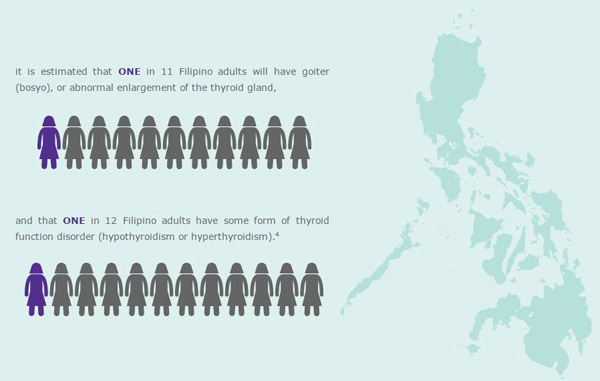
To raise awareness of thyroid disorder, Merck Inc. held a bloggers’ event at the Radisson Blu Hotel. Dr. April Medoy Abcede of Philippine Society and Endocrinology, Diabetes, and Metabolism, who is also the guest speaker of the night, discussed to the bloggers what the thyroid is, its disorders, and how it affects different individuals.
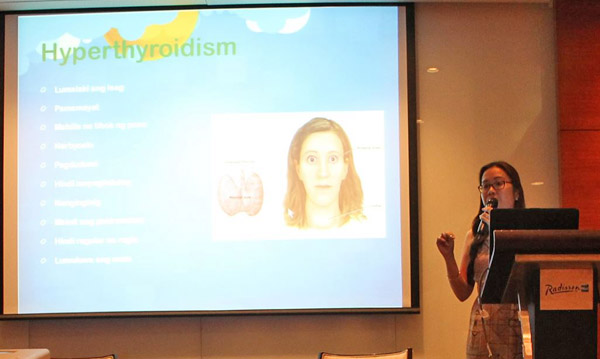
It was an event of fun but also full of knowledge, as I am going to share that one to you here.

About the Thyroid Gland
To begin with, the thyroid gland is a small, butterfly-shaped organ found at the lower middle part of the neck. It is sometimes referred to as the “master controller” of metabolism, and is important to health and well-being. The thyroid creates, stores, and releases thyroid hormones into the blood. Thyroid hormones are important to the normal function of our body. It affects everything from the brain to our other organs.
These thyroid hormones, Triiodothyronine (T3) and Thyroxine (T4), are very much important in the body. The thyroid gland is the one responsible for making them. It is very important that the levels of these thyroid hormones in the blood are just enough. They should not be too low or too high. In the event that a person gets to experience high or low thyroid hormones in the body, this simply means that he or she is having a certain thyroid problem that needs to be checked then before it gets too late.
Common Thyroid Problems
Hypothyroidism and Hyperthyroidism are the two most common thyroid problems that could afflict a person.
Hypothyroidism or patients with too little thyroid hormone tends to have slower metabolism: they gain weight despite not eating much, move, and speak slowly, feel tired and have depressing thoughts, cannot tolerate cold, and have irregular menstrual periods. Low thyroid hormones signify iodine deficiency. Those who are diagnosed with this kind of disorder are advised to take enough iodine to supply the body’s needs.
To detect if a person is hypothyroidism positive, a screening test will be done through by drawing a blood sample. This is to check the levels of Thyroid Stimulating Hormone (TSH), and thyroid hormone levels in the blood (T3 and T4). Your TSH levels will be high and T3 and T4 will be low in hypothyroidism.
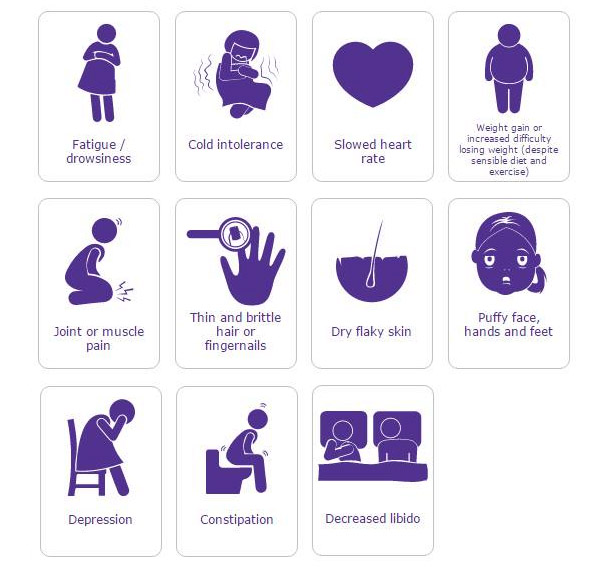
Hyperthyroidism or patients with too much thyroid hormone will have hyperactive metabolism, total opposite to the symptoms of having hypothyroidism. They lose weight despite having good appetite, have heart palpitations most of the time, irritable thoughts and insomnia, have sweating and heat intolerance, and can experience tremors in their hands.
Too much thyroid hormone means the need to lessen the release of T3 and T4 to the body. Treatment for this disorder varies. Proper evaluation by a specialist needs to be done.
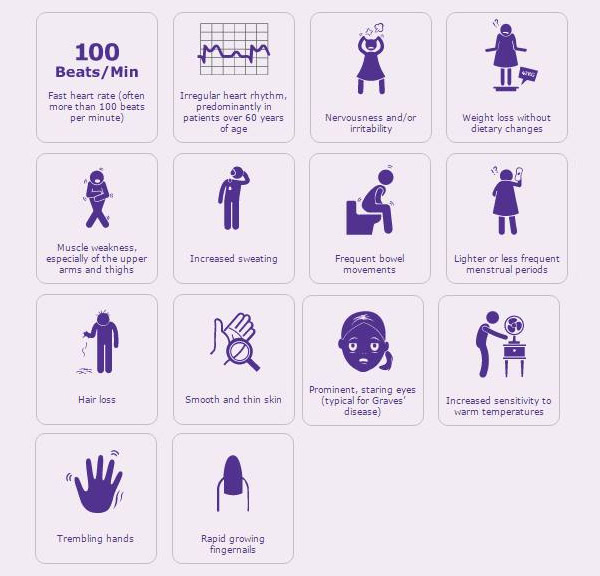
To detect for being hyperthyroidism positive, blood test is needed to check Thyroid Stimulating Hormone (TSH) and thyroid hormone levels in the blood (T3 and T4). You will have low TSH and high T3 and T4 if you have a hyperthyroid.
Thyroid disorder can affect anyone particularly women most especially those undergo pregnancy. It is estimated that around one in 20 pregnant women will develop an underactive thyroid (hypothyroidism) during pregnancy.
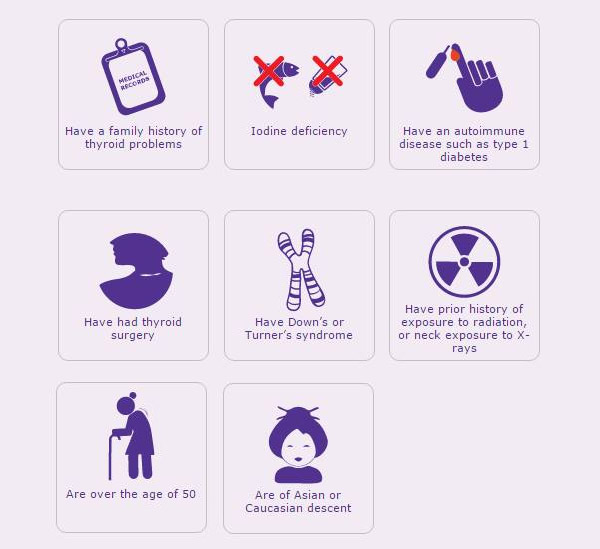
Most women are unaware that they have this condition because the symptoms are similar to the changes in the body due to pregnancy, such as weight gain, fatigue, and leg swelling. By thyroid problems can’t be detected through symptoms alone. However, if you think there’s something wrong in your body and you also have a thyroid disorder history, it is essential to see your physician and discuss with them the possibility of having it in order to be treated right away, especially if you get positive of having thyroid disorder during pregnancy.
More information can be found online at www.thyroid.ph. This is an online repository of information where people can learn more about thyroid disorders. It also contains useful guides that can help people check themselves for symptoms of thyroid disorders.
You may also like
ONE Negros: Kasalan2024 Negros Island Region Wedding Tourism Expo
TechLife Smart Watch L1: Staying Fit, Connected, and Stylish
Sun Life Foundation Turns Over Barangay Health Station to Brgy. Maasin, Tarlac
Use JENTIKA 1 GR Larvicide to Kill Dengue Mosquitoes
Independence Day at SM Supermalls: Super Pinoys and Food Finds